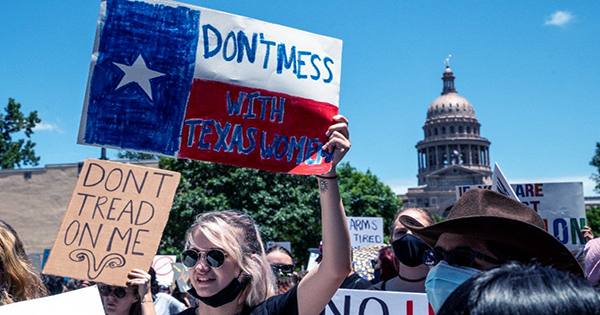On Wednesday, a federal court temporarily barred Texas’ extraordinary near-total ban on abortion, adding to the state’s opposition. The Biden administration’s appeal temporarily block the new law, known as SB8, which prohibits abortions as early as six weeks of pregnancy, was approved by US District Judge Robert Pitman. Judge Pitman claims that Texas has endeavored to “actively, aggressively, and purposefully deprive its residents of a constitutional right” in a 113-page order. “Women have been wrongfully barred from exercising control over their own lives in ways that are protected by the Constitution since the passage of SB8,” he said. “Under the Constitution, a person’s right to choose to have an abortion prior to fetal viability is firmly established.
Fully aware that depriving its citizens of this right through direct official action would be unlawful; the State devised an unprecedented and transparent legal structure to accomplish so.”
It is unclear how the order will affect abortion access in Texas or whether abortion providers would continue performing procedures in the state. Republican lawmakers promptly contested the interim halt. Texas challenged the verdict just hours after the judge announced it, telling the US Court of Appeals for the Fifth Circuit that it would intervene, laying the stage for more court battles.
The “Texas Heartbeat Act” went into effect on September 1, prohibiting doctors from performing or inducing abortions once, an ultrasound detects “cardiac activity” in an embryo, which is roughly six weeks. Because many individuals do not realize they are pregnant until they are six weeks along, which is only two weeks after a missed period, the new rule has dubbed a “near-total abortion prohibition.”
There are no exceptions for rape or incest in the new rule, while there is an exception for “medical situations.” For the first time, any private citizen can file a civil complaint against anyone who supports a pregnant woman seeking an abortion. However, the temporary halt prevents any state court judge or clerk from accepting or processing any civil complaints involving the abortion ban.
The law has only been in effect for a month, but constitutional rights organizations say it has already had an impact on those seeking abortions, particularly underrepresented groups like people of color and young people. While many proponents of abortion rights have applauded the Supreme Court verdict, the road ahead appears to be murky.
“About a month ago, five Supreme Court Justices shrugged their shoulders and let this heinous law become law. People who need abortion care and have resources have been forced to flee the state, while those who lack resources or the ability to travel have been forced to remain pregnant against their will,” Brigitte Amiri, deputy director of the American Civil Liberties Union Reproductive Freedom Project, said in a statement. “While the court’s decision provides some respite, the threat of Texas’ abortion prohibition continues to lurk over the state as challenges progress through the courts.”















